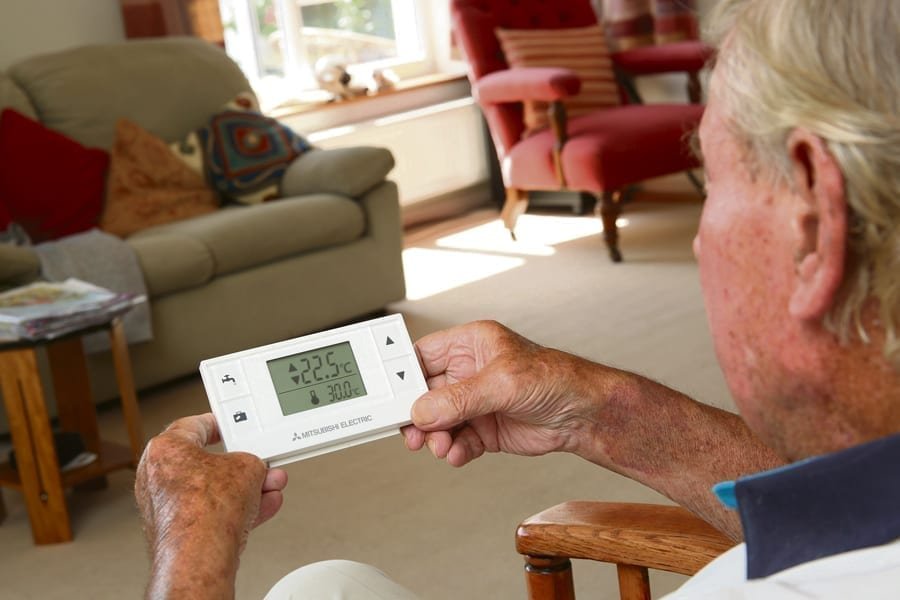Traditional gas and oil boilers have served us well for decades, but fuel prices won’t stay low forever and many of us are looking for a more sustainable way to heat our homes.
If you live in an off-gas area, you’ll remember times when the oil tanker failed to get through, and the huge cost of filling a tank when the price of oil was over $100 a barrel. This is where heat pump technology can really make a difference.
What’s new?
 You may have heard of an ‘air source heat pump’ and wondered whether this ‘new’ technology would be suitable for your home. Despite the apparently recent arrival of heat pumps in the UK, we’ve all been using the same basic technology for decades.
You may have heard of an ‘air source heat pump’ and wondered whether this ‘new’ technology would be suitable for your home. Despite the apparently recent arrival of heat pumps in the UK, we’ve all been using the same basic technology for decades.
Few people would question how a refrigerator works – it just hums away in the corner of the kitchen, keeping food chilled or frozen. It’s a dependable part of the modern home.
The fridge uses a circuit of copper piping at the back of the unit, which contains refrigerant (hence the name) that is compressed and expanded to move heat from one place (the food, making it cold) to another (in this case the back of the fridge).
In an air source heat pump, low-grade heat is harvested from the outdoor air (even when temperatures are sub-zero) and upgraded – using the same refrigerant compression cycle – to produce all the heating and hot water your home needs.
These heat pumps are available as a ‘monobloc’ system that sits quietly outside your home – it’s a very straightforward installation for a reputable heating engineer.
Renewable and reliable
The way we heat homes in the UK is changing rapidly: we’re looking for less carbon-intensive alternatives to fossil fuel heating that will help achieve the government’s ambitious and legally binding carbon reduction commitments.
At the same time, we all need to find more sustainable, low-cost ways of keeping our houses warm and comfortable all year round.
For most UK homes, gas boilers are a relatively cheap way to keep a house warm and the current low price of oil is also helping those not connected to the gas network.
However, it would take a brave person to bank on oil and gas prices remaining low for much longer; in general, costs have increased significantly over the last decade.
Relying on carbon-intensive gas and oil also leaves Britain hostage to global fuel prices and leads to uncertainty of supply. We now import more than we produce, making us much more reliant on supplies from places like Russia.
So if you want to find a sustainable way to heat your home that could also reduce your monthly running costs, an air source heat pump could well be the answer.
Retrofits and new builds
Heat pumps work best when the building has already been made as thermally efficient as possible. They generally work with lower temperatures flowing around either a radiator system or underfloor heating, and this is how the highest efficiency is achieved.
If that makes it sound like you won’t have a warm and toasty home, you couldn’t be further from the truth: heat pumps work best when left to operate almost all of the time, rather than in the ‘on’ and ‘off’ way that an oil or gas boiler does.
If you want your room to be a comfortable 21°C then the heat pump can move heated water around the system at 35°C or 45°C, which will still achieve the temperatures you need. This means that heat pumps can operate to match the need of the house at any given time, and operate at low power levels while maintaining the home at the temperatures required.
As a result, heat pumps can deliver reliable heating and hot water in a sustainable way with low running costs, less maintenance and no need for gas safety certificates. They’ve already been installed in tens of thousands of homes across the UK, from the Isle of Wight to the Orkney Isles.
 Play Video about This Rock Might Just Save The World
Play Video about This Rock Might Just Save The World Play Video about Play 2 hours of rock
Play Video about Play 2 hours of rock Play Video about Play 2 hours of brook
Play Video about Play 2 hours of brook Play Video about Play 2 hours of sheep
Play Video about Play 2 hours of sheep


















 You may have heard of an ‘air source heat pump’ and wondered whether this ‘new’ technology would be suitable for your home. Despite the apparently recent arrival of heat pumps in the UK, we’ve all been using the same basic technology for decades.
You may have heard of an ‘air source heat pump’ and wondered whether this ‘new’ technology would be suitable for your home. Despite the apparently recent arrival of heat pumps in the UK, we’ve all been using the same basic technology for decades.

























